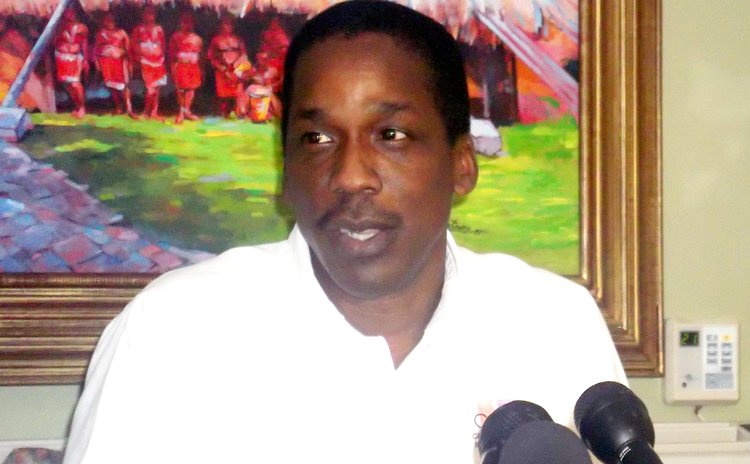Peter Wickham: UWP blew it
Barbadian political scientist Peter Wickham says UWP let Skerrit escape

In the eyes of one political scientist, they blew it; they really blew it.
"While I think the opposition was onto a good thing in prosecuting this passport issue, the way they went about it, they did a disservice to themselves."
This is how Barbadian political scientist Peter Wickham, who has worked here as a pollster for the ruling Dominica Labour Party (DLP) views the current political developments here that have inflamed passions and driven a deeper wedge in an already bitterly divided country.
"It has taken the attention away from themselves."
As far is Wickham is concerned, the United Workers Party (UWP) had a perfectly legitimate reason to challenge the prime minister, Roosevelt Skerrit, on the sale of Dominican passports and the distribution of ambassadorial posts to people of questionable character.
The case of Iranian fugitive Ali Reza Ziba Halat Monfared had geed up the UWP and had placed Skerrit on the back foot as he struggled to regain control of an issue that was quickly becoming a pilotless high-speed train on the borders of hell.
Then came the "D-Day" meeting and the violent aftermath, which Skerrit said was an attempt to overthrow his government- an accusation that has been ridiculed by critics as wild speculation.
Wickham told The Sun the UWP had a responsibility to control its supporters at the rally. Instead, its leader, Lennox Linton, demonstrated little enthusiasm for the inconveniences of following what the law officers said was an agreement to end the meeting at a specific time. And clearly unconvinced that those behind the violence were frustrated youths who had no association with the opposition party, Wickham suggested "there was enough rabble-rousing in the way they went about the protest" to inflame passions even further and spur on the troublemakers.
"What is it they are frustrated with? If they are frustrated with the passport issue, they are clearly opposition supporters. If they are frustrated with something else, what is the reason for the frustration? Is it unemployment? They need to say that," the pollster scientist said.
"If you are the opposition and you set up the [opening] for this to happen, who is the idiot?"
The UWP has long complained about the lack of transparency in the sale of Dominican passports, and Skerrit's attempts at explaining the process have so far failed to make it any clearer as he appears to expect a concerned public to trust his word.
The prime minister has not revealed how many passports have been sold, who are the purchasers of the country's patrimony, or what the terms and conditions are for those peddling the passports.
And while a small group of agents are said to be raking in millions of dollars, the rest of the country has hardly seen the benefits, until the prime minister recently began pumping money into a number of projects which he said were being financed with funds from the programme.
Even more secretive is the scheme through which foreigners are appointed to ambassadorial posts.
Skerrit has repeatedly made it clear that Dominica does not sell diplomatic passports. What remains unclear, however, is what contribution the people who are secretly appointed must make in order to receive such appointments.
Wickham told The Sun he would prefer a greater degree of transparency in the programme, even while accepting that a number of countries involved had adopted a position of secrecy.
However, he said the opposition's demands for a more open system have failed because their approach has been wrong.
"If the opposition's objective is to make government more transparent, they have failed it. If you are going to press the issue of transparency, fine. You're on good political ground. If you want to force them to be more transparent, they are going about it in the wrong way," he said.
"It's a messy issue politically," Wickham added about the diplomatic passport distribution system, "but I think it has become more messy because of the direction it has taken."
A direction that has led to the UWP blowing a great opportunity, he surmised.




